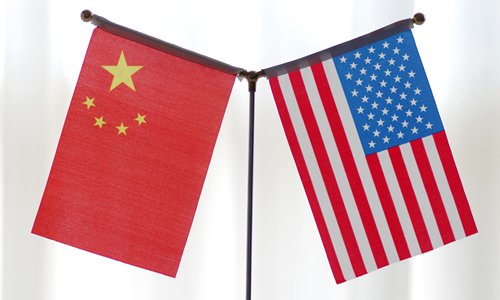HOME >> OPINION
Spying slur looms large over Chinese in US
By Rong Xiaoqing Source:Global Times Published: 2019/10/10 17:23:40

Photo: IC
In a testimony before the Senate Intelligence Committee last February, Christopher Wray, director of the Federal Bureau of Investigation (FBI), indicated that all Chinese living in the US are potential informants working for Beijing. "One of the things we're trying to do is view the China threat as not just a whole-of-government threat, but a whole-of-society threat on their end," he said, and recommended "a whole-of-society response" from the US side.
Since then, law enforcement in the US has ratcheted up scrutiny against Chinese living in the US, and those who work in academia and science are in the front row. Last November, the US Department of Justice launched the "China Initiative" to counter what it called intellectual property espionage emanating from China by among other tactics fending off "nontraditional collectors" working as researchers and scholars and educating American universities about the risk of working with Chinese scholars. More and more universities have been approached by authorities with inquiries about the activities of their Chinese researchers.
I have no means to provide a "yes" or "no" answer to whether some Chinese scientists are collecting information for China. And I do believe if a real espionage case is uncovered, the person or persons responsible should be punished. What worries me is the chill these seemingly ever-expanding operations have sent in academic and scientific circles, a chill that seems to have started disrupting normal academic exchanges.
The latest signs came from the 27th Annual Convention of Chinese Association for Science and Technology, USA that was held on October 5 at Columbia University in New York. Founded in 1992, the organization now has close to 10,000 members in the US working in technology, education, law, finance and other fields, including many leading scientists and academics.
Its annual convention has been a platform for Chinese and American researchers to communicate and join hands. This year, the keynote speakers were as appealing as ever, including Nobel laureates and members of the American Academy of Arts and Sciences and the US National Academy of Sciences. But the organizers told me the number of attendees from China, who used to travel to the US for the convention, has sunk this year.
The Chinese scientists I talked to at the convention, both Chinese nationals living in the US and American citizens, shared their concerns about the current overcharged atmosphere. But many also talked gingerly and anonymously, worrying that a quote in the media, even a innocuous one, could draw unnecessary attention from suspicious FBI agents.
Xiaoxing Xi, a Chinese-American physicist at Temple University, joined a panel discussion via Skype to offer advice to scientists and scholars in a state of trepidation. Xi gained some unwanted fame after being wrongfully charged by the federal government in 2015 for allegedly sending restricted technology to China. The charges were dropped after law-enforcement authorities realized they had misunderstood the technology Xi had dealt with.
Nevertheless, Xi said he still lives in the pall of the incident: He and his family live in fear - not knowing whether their phone calls and e-mails are still being monitored by the government and fearing any word they say would be misunderstood and get them dragged through the mud.
Xi said most scholars in universities focus on fundamental research that is far from becoming commercially applicable intellectual property. And international exchanges and collaboration at this level are not only necessary but also encouraged by governments. The overlooking of this distinction and the ignorance of law-enforcement agents about particular science and technology subjects makes him worry more innocent scholars could easily be mistreated. "I've been telling Chinese scientists: Don't think this won't happen to you," Xi said.
During the question and answer session, a woman in the audience shared her experience of working on a US government contract for a nuclear submarine project at the defense giant Lockheed Martin. When she needed to renew her security clearance, she was repeatedly interviewed by government officials, and even the fact that she had not been back to China in the previous decade was questioned. Her security clearance was eventually renewed but she decided to leave the company and vowed never to work on government contracts again.
The audience sighed knowingly. An official of the association acknowledged some of its members have been interviewed by FBI agents.
Law enforcement in the US has a duty to protect the interests of this country. But there are different ways to approach the goal. They seem to be taking an approach of, to quote a Chinese warlord in the early 20th Century, "rather wrongfully beheading a thousand innocent than risking missing out one guilty."
But an overstretched net may drag things in the opposition direction from the caster's wish. As David Ho, a leading AIDS treatment researcher reminded me at the convention, Qian Xuesen, the physicist who helped America build its first atomic bomb, was driven back to China by the "red scare" in the 1950s. And then he helped China build its own bomb.
The author is a New York-based journalist and Alicia Patterson fellow. rong_xiaoqing@hotmail.com
Posted in: VIEWPOINT